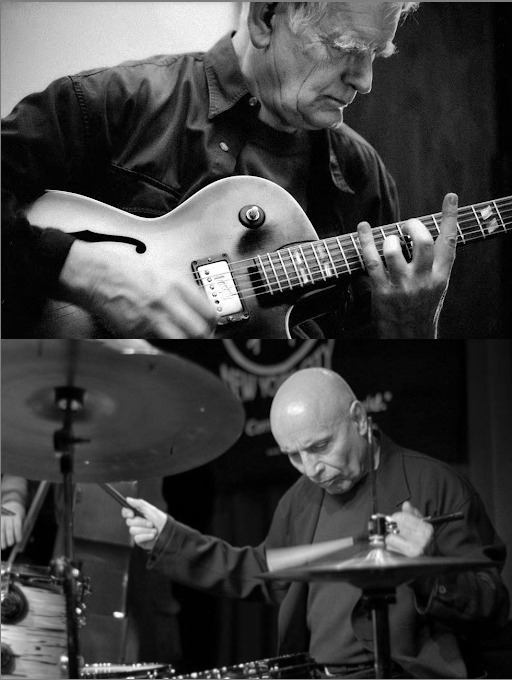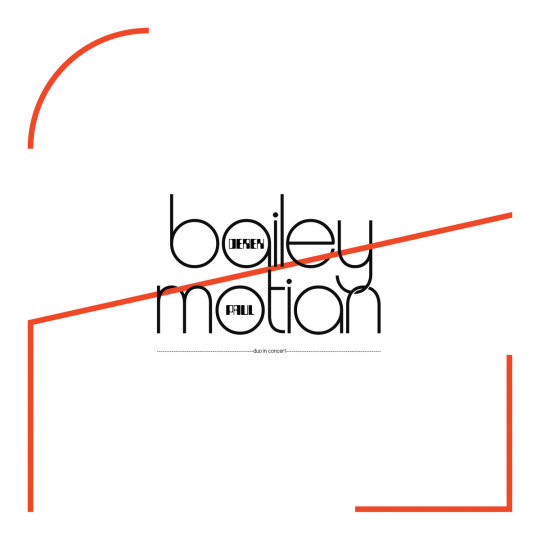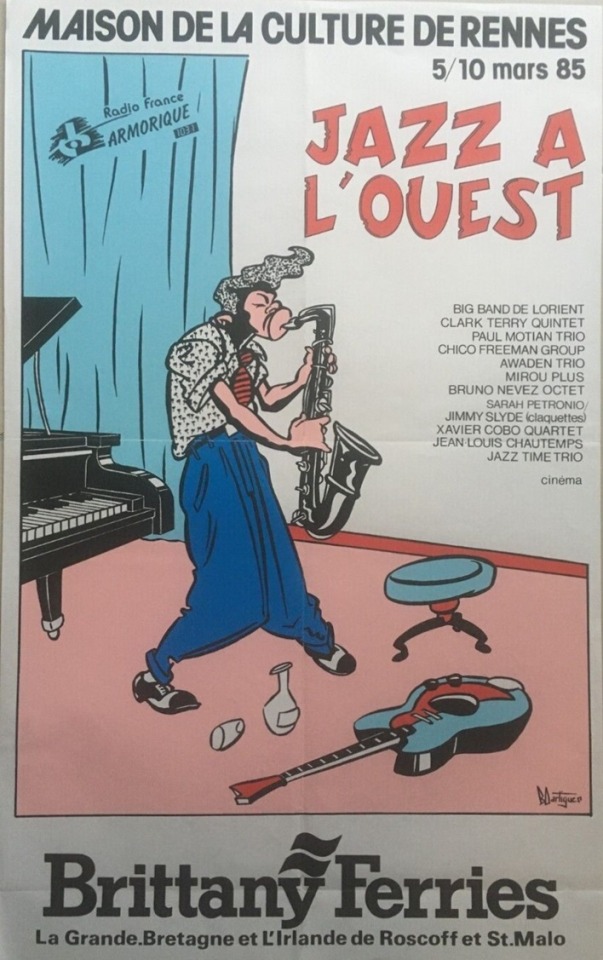#Paul Motian
Explore tagged Tumblr posts
Text

21 notes
·
View notes
Text

youtube
Keith Jarrett's LP Death And The Flower (1975, Impulse) includes his tune "Prayer". w/ my father, saxophonist Dewey Redman, drummer Paul Motian, percussionist Guilherme Franco.
9 notes
·
View notes
Video
youtube
Interesting collection of musicians. Mick Goodrick - originally the senior guitarist in the Gary Burton Quintet (the 2nd guitarist being Pat Metheny). A built in recording trio of Geri Allen - Charlie Haden - Paul Motian.
3 notes
·
View notes
Text
The Brilliance of Keith Jarrett: A Jazz Legend
Introduction: Keith Jarrett is a name synonymous with virtuosity, innovation, and boundless creativity in the world of jazz. Born seventy-nine years ago today on May 8, 1945, in Allentown, Pennsylvania, Jarrett’s musical journey began at a young age. His prodigious talent was evident early on, and he quickly established himself as a gifted pianist and composer. Early Career and Formation of the…

View On WordPress
#American Quartet#Art Blakey#Charles Lloyd#Charlie Haden#Dewey Redman#Gary Peacock#Jack DeJohnette#Jazz History#Jazz Pianists#Keith Jarrett#Michala Petri#Michelle Makarski#Miles Davis#Paul Motian#The Köln Concert#The Standards Trio
12 notes
·
View notes
Text

Keith Jarrett, Charlie Haden, Paul Motian and Dewey Redman.
At the backstage of Kosei Nenkin Hall, Tokyo, 1974.
Photo by Yuzo Satoh.
#keith jarrett#charlie haden#dewey redman#paul motian#jazz#keith jarrett quartet#keith jarrett american quartet#1974#tokyo#japan#yuzo satoh
36 notes
·
View notes
Text

1980 - Charlie Haden, Paul Motian, Dewey Redman & Pat Metheny - Baker's Keyboard Lounge - Detroit (Michigan)
10 notes
·
View notes
Text
Derek Bailey / Paul Motian — Duo in Concert (frozen reeds)

Specializing in archival recordings, the Helsinki frozen reeds label has come up with another doozy. This time unearthing in the Incus archives previously unreleased concert recordings of guitarist Derek Bailey and drummer Paul Motian for the release "Duo in Concert." Released at the tail-end of 2023, the LP version captures the duo live at the 1990 Jazz Marathon at De Oosterpoort festival in the city of Groningen, the Netherlands. As bonus digital tracks, the label offers recordings made at the New Music Cafe in New York City in 1991. A conversation between Bill Frisell and Henry Kaiser discussing these recordings and their collective experiences playing with Bailey and Motian is included as liner notes.
It's hard to approach a recording from two of my all-time favorite artists with any sense of objectivity, not to mention a heavy dose of expectation. And with a pairing that — at least on paper — doesn't immediately make outright sense, a certain degree of trepidation preempts the initial listening process as well. Accounts of both Bailey and Motian's contrariness and adversarial approach to performing are legion. Having seen both musicians live, I always had the feeling that everything could go off the rails at any moment. There was a certain sense of peril and uncertainty that pervaded their music — and not only because what they were doing was risky but more because they didn't seem to adhere to any rules of musical decorum.
When I first saw Bailey play solo in the mid-1980s, he broke off his set mid-concert to start sharing what seemed like random anecdotes with the audience, then picked right back up and started to play all over again. He stopped abruptly once more a bit later to tune his guitar (actually not much unlike what goes on in Indian classical music). It was almost as if he didn't see the point of himself being there. What he played — when he actually played — was undeniably brilliant. But his attitude came across as ambivalent and irascible, to say the least.
Similarly when I caught Motian in the early 1990s with his trio of Bill Frisell and Joe Lovano, he seemed to revel in the act of eloquent disruption, of not letting things ride but of seeking to derail and create situations where the music took sudden turns down unknown roads. Motian soloed like a kid discovering the drums for the first time, alternately bashing the toms or dropping bombs of bass drum cymbal crashes, then suddenly shifting to exquisite brush work on the snare, echoing his time with Bill Evans.
So, what was I to think of this improbable pairing? Obviously, from the start I was rooting for them. These guys were my heroes. But heroes also fall. I'm happy to say that over repeated listens "Duo in Concert" did not disappoint for one second of these recordings. It would be interesting to know if this concert in Groningen was their first meeting, or if they'd had the chance to play together in a more informal setting beforehand, because the 35-minute set sounds so fresh and invigorating. As if they had met for the first time, discovering their shared language and limitations in real-time before a festival audience. Adding to this the music also comes across as very intimate, as if Motian and Bailey had already played many years together and were picking up on a conversation they'd been having the last time they met. Consequently, both players sound not only completely engaged with the music, but actually excited by what they're coming up with. Practically as though they found themselves in a perpetual state of surprise and delight for the entire length of the concert. "Duo in Concert" is truly an inspiring listen.
There is much to expect that actually transpires: Bailey's spikey, chromatic fields played in jagged rhythmic runs across an incredibly wide dynamic range, spanning the spectrum from ringing harmonics on the verge of feedback to barely caressing the strings with his pick. And then there's Motian's incredible brush work paired with bombastic tom fills and tremorous bass drum drops. The real mystery is how this all manages to coalesce into — for lack of a more apt expression — an undeniable example of sheer poetry in sound. The mutual respect and inspiration between Motian and Bailey so evident in these recordings is in itself one of the most compelling aspects of this release.
A major unifier here would have to be Bailey and Motian's shared backgrounds in jazz. Bailey used to refer to himself in his earlier musical incarnation as previously sounding something like Jim Hall. But of course by the mid-1960s had realized he would, as Henry Kaiser states in the liner notes, have to depart for Planet Improv and leave the world of jazz behind. By this point in his long career Motian still had certainly more invested in the jazz tradition but seemed not to worry about what this meant. He'd long since moved on beyond what the rule keepers of the jazz world had imposed. Yet Motian also never went totally free like Bailey. And in fact, this would be the first record I'd heard where Motian plays from scratch, without any vague road map or composition to steer the musical proceedings.
But it is precisely this jazz background which lends an unmistakable narrative thread to the concert at Groningen. Bailey and Motian's collaboration is truly like a conversation in the most literal sense of the word. And like the greatest musical conversations in the context of jazz music, both players join together for this one brief point in time to tell a story together, listening and building their musical ideas from their dialogue. As hackneyed as this may sound, the end effect is a perfect example of instant composing, of creating a totally cohesive, rigorously structured piece of music from thin air.
And this encompasses signifiers of a more narrative approach along the way: towards the midpoint of the set, Bailey fades out to let Motian take the practically obligatory drum solo, a roiling, thunderous affair across the toms and cymbals. This is followed by Bailey jumping back in with what in a more conventional jazz piece, could be the main soloist picking up again with another long passage. Along the way Bailey engages in some of the most impressionistic and nearly melodic playing I've ever heard from him, even approaching what one could construe as comping rapid chord variations to Motian's hard-driving pulse. The set ends with Motian playing a very grooving swing pattern on the high hat that not only absolutely works with Bailey's field of dissonant harmonic notes but is in itself a stroke of genius, melding the two worlds of jazz and obdurate free improvisation with a gesture of contrast and a nod to the history both of these musicians had left far behind but by no means forgotten.
For fans of Derek Bailey and Paul Motian "Duo in Concert" is an absolute must listen. For those unfamiliar with either of these artists' work, this release would be a great place to start, not only because it captures them both at the height of their powers but is also a convincing and highly moving documentation of free improvised music that shouldn't be missed.
Jason Kahn
#derek bailey#paul motian#duo in concert#frozen reeds#jason kahn#albumreview#dusted magazine#jazz#Jazz Marathon at De Oosterpoort#live#free improvisation
10 notes
·
View notes
Text
Scott LaFaro, Bill Evans & Paul Motian

(English / Español / Italiano)
In December 1959-June 1961 Bill Evans formed a musical collaboration with drummer Paul Motian and double bassist, Scott LaFaro. This inter-pair alliance revolutionised the concept of the piano trio by proposing the abandonment of the old scheme of accompanists in front of the main soloist and replacing it with a three-way dialogue with perfectly complementary voices.
(listen here)
------------------------------------------------------------------------------
En diciembre de 1959-Junio de 1961 Bill Evans formó la colaboración musical con el batería Paul Motian y el contrabajista, Scott LaFaro, esta alianza interpares revolucionó el concepto de trío de piano, al proponer el abandono del viejo esquema de acompañantes frente al solista principal y sustituirlo por un diálogo a tres con voces perfectamente complementarias.
(escucha aquí)
-----------------------------------------------------------------------------
Nel dicembre 1959-giugno 1961 Bill Evans stringe una collaborazione musicale con il batterista Paul Motian e il contrabbassista Scott LaFaro. Questa alleanza tra coppie rivoluziona il concetto di trio pianistico proponendo l'abbandono del vecchio schema degli accompagnatori davanti al solista principale e sostituendolo con un dialogo a tre con voci perfettamente complementari.
(ascolta quì)
Source: Jazz y algo más / posted by Adrian Bernal
3 notes
·
View notes
Text

Derek Bailey & Paul Motian - Duo In Concert
Let's kick off 2024 ... in 1990? Yeah, it feels like the right thing to do. Coming to us via the estimable Frozen Reeds label, Duo In Concert captures a rare live show from two titans — avant-improv guitarist Derek Bailey and legendary jazz drummer Paul Motian. "It's so hard to talk about, because it's so beautiful," says Bill Frisell. "It's like you're seeing some new species of plant that you never knew existed or something." And as usual, Bill is right! This is special stuff, a free-flowing musical conversation that provides more questions than answers ultimately — but those questions linger in your mind long after the last notes ring out. Both Bailey and Motian have passed on to some other plane of existence, but here they're as vivid and thrilling as ever.
6 notes
·
View notes
Text
21.05.2025

wednesday ~ 21.05.2025
crosby, stills, nash & young - our house
robert fripp - exposure
primus - jerry was a race car driver
paul motian trio - folk song for rosie
nürnberg - black sabbath
ploho - прости
#crosby stills nash and young#robert fripp#primus#paul motian#nürnberg#ploho#music playlist#morning#morning walk#music#walks#minimalism#foggy morning
1 note
·
View note
Text

16 notes
·
View notes
Text

youtube
"Keith Jarrett" (1976, Impulse) is a Japan-only compilation LP. Included is the 1974 track "Treasure Island". w/ my father, Dewey Redman, Sam Brown, Paul Motian, Danny Johnson & Guilhermo Franco.
#charlie haden#jazz#jazz music#keith jarrett#paul motian#dewey redman#sam brown#danny johnson#guilhermo franco#Youtube
7 notes
·
View notes
Text

Marilyn Crispell, Gary Peacock & Paul Motian
Nothing ever was, anyway. Music of Annette Peacock, 1997 · Play album
Marilyn Crispell (piano), Gary Peacock (double-Bass) & Paul Motian (drums). Annette Peacock: voice in Dreams (If time weren't).
ECM 1626/27
* Lp info
0 notes
Text
Bill Frisell: Master of Eclectic Guitar
Introduction: Bill Frisell is a name synonymous with innovation and versatility in the world of jazz and contemporary music. With a career spanning over four decades, Frisell has consistently pushed the boundaries of guitar playing, blending a wide array of genres and styles into his unique sound. From jazz and blues to country and folk, Frisell’s music defies categorization, earning him a…

View On WordPress
#Bill Frisell#Charlie Haden#Elvin Jones#Finding Forrester#Have a Little Faith#It Should&039;ve Happened a Long Time Ago#Jazz Guitarists#Jazz History#John Zorn#Paul Motian#Psalm#This Land#Wes Montgomery
13 notes
·
View notes
Text

1985 - Jazz à l'Ouest - Maison de la Culture de Rennes
Big Band de Lorient
Clark Terry Quintet
Paul Motian Trio
Chico Freeman Group
Jimmy Slyde
Xavier Cobo Quartet
Jean-Louis Chautemps
...
#jazz#poster flyer#clark terry#paul motian#chico freeman#jimmy slyde#xavier cobo#jean louis chautemps#1985
10 notes
·
View notes